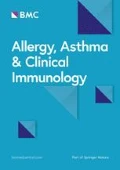Mast cells are abundant at the periphery of the majority of solid tumors where they typically promote angiogenesis and enhance tumor growth. However, there is some evidence from epidemiological studies that allergic disease reduces cancer risk. In the context of infection, mast cell activation with Toll-like receptor (TLR) agonists induces the production of multiple mediators which mobilize and activate known anti-tumor effector cells. TLR agonists can also be effective in tumor immunotherapy. We demonstrate that the TLR2 agonist Pam3CSK4 is tumor inhibitory and mediates its effects via mast cell activation and reversal of the normal pro-tumorigenic activity of mast cells. TLR2 agonist treatment decreased B16.F10 tumor growth in wild-type mice, but not in mast cell deficient KitW-sh/W-sh mice. Tumor growth inhibition following TLR2 agonist administration was restored in KitW-sh/W-sh mice by local reconstitution with wild-type, but not TLR2-deficient mast cells. Mast cell dependent tumor growth inhibition occurred independently of tumor necrosis factor (TNF) production and was not associated with direct tumor cytotoxicity or degranulation in vitro. Tumor growth inhibition was associated with mast cell dependent recruitment of natural killer (NK) and T cells. This study demonstrates that local mast cell activation provides a novel opportunity to modify the tumor microenvironment for successful cancer immunotherapy. Supported by the CCSRI and CIHR. S.A.O is a recipient of support from the Nova Scotia Health Research Foundation.
Author information
Authors and Affiliations
Corresponding author
Rights and permissions
Open Access This article is published under license to BioMed Central Ltd. This is an Open Access article is distributed under the terms of the Creative Commons Attribution 2.0 International License (https://creativecommons.org/licenses/by/2.0), which permits unrestricted use, distribution, and reproduction in any medium, provided the original work is properly cited.
About this article
Cite this article
Oldford, S., Haidl, I., Howatt, M. et al. Local Toll-like receptor-mediated mast cell activation inhibits melanoma growth. All Asth Clin Immun 6 (Suppl 1), P19 (2010). https://doi.org/10.1186/1710-1492-6-S1-P19
Published:
DOI: https://doi.org/10.1186/1710-1492-6-S1-P19

